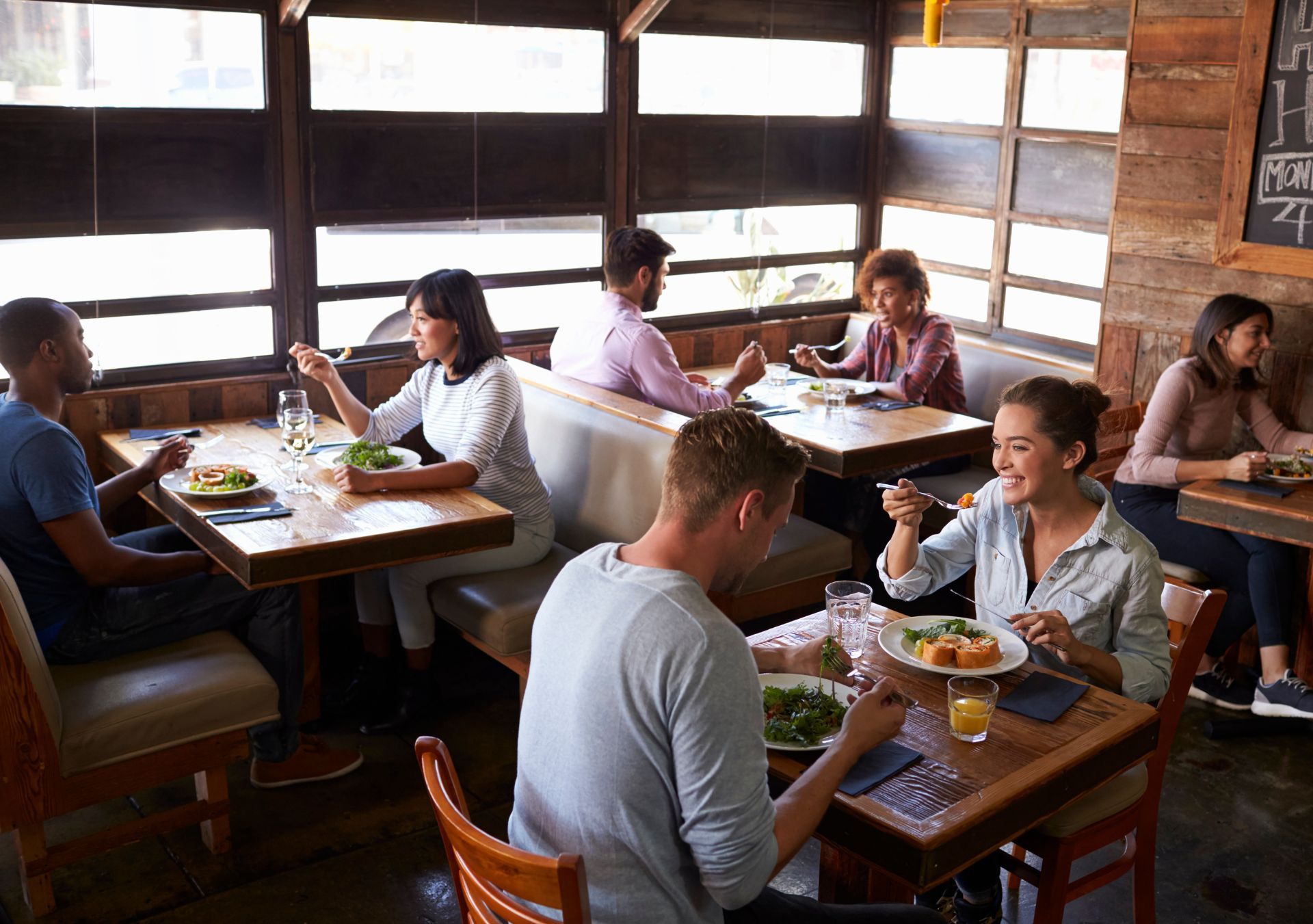
Most Common Business Policies
Index
Understanding the Basics of Restaurant Insurance
The Importance of Workers' Compensation Insurance
Determining the Right Coverage for Your Restaurant
Common Exclusions in Restaurant Insurance Policies
Cost of Restaurant Insurance in Arizona
Tips for Reducing Insurance Costs
Contact Us
Operating a restaurant in Arizona comes with its own set of challenges and rewards. One crucial aspect that often gets overlooked is insurance. Understanding the various types of insurance available and how they can protect your business is essential for any restaurant owner. This article will delve into the specifics of Arizona restaurants insurance, covering everything from basic coverage options to specialized policies tailored for the unique needs of the food service industry.
Understanding the Basics of Restaurant Insurance
Restaurant insurance is designed to protect food service establishments from a variety of risks. These risks can range from property damage to liability claims. In Arizona, where the restaurant industry is booming, having the right insurance coverage is not just a legal requirement; it is also a smart business move. With the state's diverse climate and the popularity of outdoor dining, restaurant owners must be particularly vigilant about the potential hazards that could impact their operations.
Types of Coverage
There are several types of insurance coverage that restaurants typically require. These include general liability, property insurance, and workers' compensation. Each type serves a specific purpose and addresses different risks associated with running a restaurant. Additionally, specialized coverages such as business interruption insurance and food spoilage insurance can further safeguard a restaurant's financial health in the event of unforeseen circumstances.
General Liability Insurance
General liability insurance is essential for any restaurant. It protects against claims of bodily injury, property damage, and personal injury. For instance, if a customer slips and falls on your premises, this insurance can cover legal fees and medical expenses. In Arizona, where outdoor dining is popular, having adequate general liability coverage is even more critical due to the increased risk of accidents. Furthermore, this type of insurance can also protect against claims related to foodborne illnesses, which can be particularly damaging to a restaurant's reputation and finances.
Property Insurance
Property insurance covers the physical assets of your restaurant, including the building, equipment, and inventory. In Arizona, where natural disasters like wildfires and floods can occur, having robust property insurance is vital. This coverage ensures that your restaurant can recover financially if a disaster strikes, allowing you to replace damaged equipment and continue operations. Moreover, property insurance can also extend to cover loss of income due to these disasters, providing a financial cushion while repairs are made and normal operations are restored. It's crucial for restaurant owners to regularly assess their property insurance needs, especially as they invest in new equipment or expand their facilities, to ensure they have adequate coverage for their growing business.

While general liability and property insurance are fundamental, many restaurants in Arizona may benefit from specialized coverage options tailored to their specific needs. These options can help mitigate risks that are unique to the food service industry. Understanding these specialized coverages can be the difference between a thriving establishment and one that struggles in the face of unforeseen challenges.
Liquor Liability Insurance
If your restaurant serves alcohol, liquor liability insurance is a must. This coverage protects against claims related to the sale of alcoholic beverages, such as injuries or damages caused by intoxicated patrons. In Arizona, where the nightlife is vibrant, having this insurance can safeguard your business from costly lawsuits. Additionally, it can cover legal fees and settlements that arise from incidents involving alcohol, ensuring that your restaurant can continue to operate without the burden of financial strain from unexpected legal issues.
Food Contamination Insurance
Food contamination insurance is another specialized option that can be particularly beneficial for restaurants. This coverage protects against losses incurred due to foodborne illnesses or contamination claims. In an industry where food safety is paramount, having this insurance can provide peace of mind and financial protection in the event of a health crisis. Furthermore, it can also cover the costs associated with product recalls, which can be a significant financial burden for restaurants. By having this insurance, restaurant owners can focus on serving their customers rather than worrying about the potential fallout from a food safety incident.
Equipment Breakdown Insurance
Another important coverage option is equipment breakdown insurance. This type of policy covers the repair or replacement of essential kitchen equipment that may fail unexpectedly, such as ovens, refrigerators, and dishwashers. In a bustling restaurant environment, a malfunctioning piece of equipment can lead to significant operational downtime and lost revenue. With equipment breakdown insurance, restaurant owners can ensure that they are prepared for these unforeseen events, allowing for quick repairs and minimal disruption to their service. This coverage not only protects the financial investment in kitchen equipment but also helps maintain the quality and consistency of the food served to patrons.
Cyber Liability Insurance
In today's digital age,
cyber liability insurance is becoming increasingly relevant for restaurants that process customer payments online or store sensitive customer information. This coverage protects against data breaches and cyberattacks that could compromise customer data, leading to potential lawsuits and reputational damage. As more consumers opt for online reservations and mobile payments, having robust cyber liability insurance can help safeguard your restaurant from the financial repercussions of a data breach, ensuring that your customers' information remains secure and your business reputation intact.
The Importance of Workers' Compensation Insurance
Workers' compensation insurance is not just a legal requirement in Arizona; it is also a critical component of restaurant insurance. This coverage protects employees who are injured on the job, ensuring they receive medical care and compensation for lost wages. In the bustling environment of a restaurant, where the risk of slips, falls, and other accidents is heightened, having this insurance is essential for maintaining a healthy workforce and a thriving business.
Legal Requirements
In Arizona, businesses with more than one employee are required to carry workers' compensation insurance. This law is in place to protect both employees and employers. By having this coverage, restaurant owners can avoid potential lawsuits and ensure their staff is cared for in the event of an accident. Furthermore, compliance with these regulations not only safeguards the business from legal repercussions but also fosters a culture of accountability and responsibility within the workplace.
Benefits for Restaurant Owners
Beyond legal compliance, workers' compensation insurance offers numerous benefits for restaurant owners. It can help create a safer work environment by encouraging proper safety practices. Additionally, it can enhance employee morale, knowing they are protected in case of an accident. This sense of security can lead to increased productivity and lower turnover rates, as employees are more likely to stay with an employer who prioritizes their well-being. Moreover, having a robust workers' compensation policy can also improve a restaurant's reputation, attracting both customers and potential employees who value safety and care in their workplace.
Moreover, in the event of a workplace injury, workers' compensation insurance can help streamline the process of recovery for affected employees. With access to quality medical care and rehabilitation services, injured workers can return to their roles more quickly and effectively. This not only minimizes disruption to restaurant operations but also reinforces the commitment of the restaurant owner to the health and welfare of their staff. Additionally, many insurance providers offer resources and training programs aimed at accident prevention, further enhancing workplace safety and reducing the likelihood of future claims.
Determining the Right Coverage for Your Restaurant
Choosing the right insurance coverage for a restaurant can be overwhelming. Several factors come into play, including the size of the establishment, the type of cuisine served, and the specific risks associated with the location.
Assessing Your Risks
Before selecting an insurance policy, it is crucial to assess the unique risks your restaurant faces. This assessment can involve evaluating the layout of your establishment, the type of equipment used, and the nature of your clientele. For example, a restaurant with a large outdoor patio may face different risks than a small, intimate dining space. Additionally, consider the potential hazards associated with food preparation, such as slips and falls in the kitchen or equipment malfunctions that could lead to fire hazards. Understanding these risks can help you tailor your coverage to address specific vulnerabilities, ensuring that you are adequately protected against unforeseen events.
Consulting with an Insurance Agent
Working with an experienced insurance agent can simplify the process of finding the right coverage. An agent can help identify potential risks and recommend policies that provide adequate protection. They can also assist in comparing quotes from multiple insurers to ensure you are getting the best value for your coverage. Furthermore, a knowledgeable agent can explain the nuances of various policy options, such as general liability, property insurance, and workers' compensation, allowing you to make informed decisions. They may also provide insights into industry trends that could affect your coverage needs, such as changes in health regulations or emerging risks related to food safety, which can be particularly important in the ever-evolving landscape of the restaurant industry.

Common Exclusions in Restaurant Insurance Policies
While restaurant insurance can provide extensive coverage, it is essential to be aware of common exclusions that may apply. Understanding these exclusions can help restaurant owners avoid surprises when filing a claim.
Pre-existing Conditions
Most insurance policies will not cover damages or losses related to pre-existing conditions. For example, if a restaurant has a history of plumbing issues, damages resulting from those issues may not be covered. It is crucial to address any known problems before obtaining insurance to ensure full coverage. Additionally, regular maintenance and inspections can help identify potential issues before they escalate, thus safeguarding both the restaurant's assets and its insurance eligibility. By proactively managing these risks, owners can create a safer environment for both employees and patrons.
Intentional Acts
Insurance policies typically exclude claims arising from intentional acts or criminal activities. If an employee deliberately damages property or engages in illegal activities, the insurance provider will likely deny the claim. Therefore, implementing strong internal policies and employee training is vital to mitigate these risks. Establishing a clear code of conduct and conducting regular training sessions can foster a culture of accountability and integrity among staff. Furthermore, utilizing surveillance systems can deter potential misconduct and provide evidence in case of disputes, ultimately protecting the restaurant's reputation and financial stability.
Natural Disasters
Another common exclusion in restaurant insurance policies pertains to damages caused by natural disasters, such as earthquakes, floods, or hurricanes. While some policies may offer limited coverage for certain events, many do not include these catastrophic occurrences as standard. Restaurant owners situated in areas prone to such disasters should consider purchasing additional coverage or a separate policy specifically designed for these risks. This proactive approach not only safeguards the physical structure of the restaurant but also ensures that business operations can resume swiftly after an unforeseen event, minimizing financial loss and disruption.
Employee Injuries
While workers' compensation insurance is typically mandatory for businesses, certain injuries may still fall outside the coverage of a standard restaurant insurance policy. For instance, injuries resulting from horseplay or violations of safety protocols may not be compensated. It is essential for restaurant owners to foster a safety-first culture and ensure that all employees are trained in proper safety procedures. Regular safety audits and encouraging open communication about potential hazards can significantly reduce the likelihood of accidents, thereby protecting both employees and the business from financial strain due to uncovered claims.
Cost of Restaurant Insurance in Arizona
The cost of restaurant insurance can vary significantly based on several factors, including the size of the establishment, the type of cuisine, and the coverage limits selected. Understanding these factors can help restaurant owners budget effectively for their insurance needs.
Factors Influencing Premiums
Several factors influence the premiums for restaurant insurance. These include the restaurant's location, the number of employees, and the types of services offered. For example, a restaurant located in a high-traffic area may face higher premiums due to increased liability risks.
Average Costs
On average, restaurant insurance in Arizona can range from a few hundred to several thousand dollars annually, depending on the coverage selected. It is essential to obtain quotes from multiple insurers to find the best rates and coverage options for your specific needs.
Tips for Reducing Insurance Costs
While insurance is a necessary expense, there are ways to reduce costs without sacrificing coverage. Implementing certain strategies can help restaurant owners save money on their insurance premiums.
Bundle Policies
Many insurance providers offer discounts for bundling multiple policies. For example, combining general liability, property insurance, and workers' compensation into a single package can lead to significant savings. This approach simplifies management and can lower overall costs.
Maintain a Safe Environment
Investing in safety measures can also lead to lower insurance premiums. By implementing safety protocols, training staff, and maintaining equipment, restaurant owners can reduce the likelihood of accidents and claims. Insurers often reward businesses with lower premiums for demonstrating a commitment to safety.
The Claims Process
Understanding the claims process is essential for restaurant owners. Knowing how to navigate this process can help ensure that claims are handled efficiently and effectively.
Filing a Claim
When an incident occurs, the first step is to notify the insurance provider as soon as possible. Most insurers have specific timelines for reporting claims, so prompt action is crucial. Gathering necessary documentation, such as photos, witness statements, and incident reports, can help support the claim.
Working with Adjusters
After filing a claim, an insurance adjuster will typically be assigned to assess the situation. This adjuster will investigate the claim, review documentation, and determine the amount of compensation. Being cooperative and providing all requested information can help expedite the process.
Choosing the Right Insurance Provider
Selecting the right insurance provider is just as important as choosing the right coverage. A reliable insurer can make a significant difference in the level of service and support received during the policy period.
Researching Insurers
Before committing to an insurance provider, it is essential to conduct thorough research. Look for insurers with a solid reputation in the restaurant industry. Reading reviews, checking ratings, and seeking recommendations from other restaurant owners can provide valuable insights.
Evaluating Customer Service
Customer service is a critical factor when choosing an insurance provider. A responsive and knowledgeable team can make the claims process smoother and provide support when needed. Consider reaching out to potential insurers with questions to gauge their level of service before making a decision.
Conclusion
In conclusion, understanding Arizona restaurants insurance is vital for any restaurant owner. With various coverage options available, it is essential to assess the unique risks associated with your establishment and choose policies that provide adequate protection. By investing in the right insurance, restaurant owners can safeguard their business, employees, and customers, ensuring a successful and sustainable operation in Arizona's vibrant food scene.
Whether it is general liability, property insurance, or specialized coverage, having a comprehensive insurance plan in place is a key component of running a successful restaurant. By staying informed and proactive, restaurant owners can navigate the complexities of insurance with confidence.
